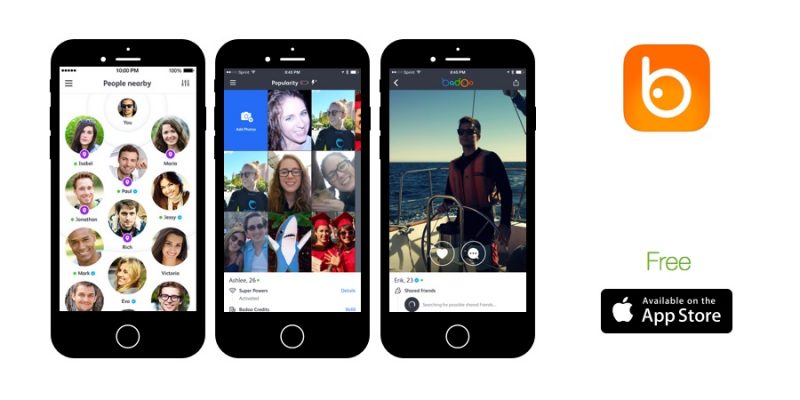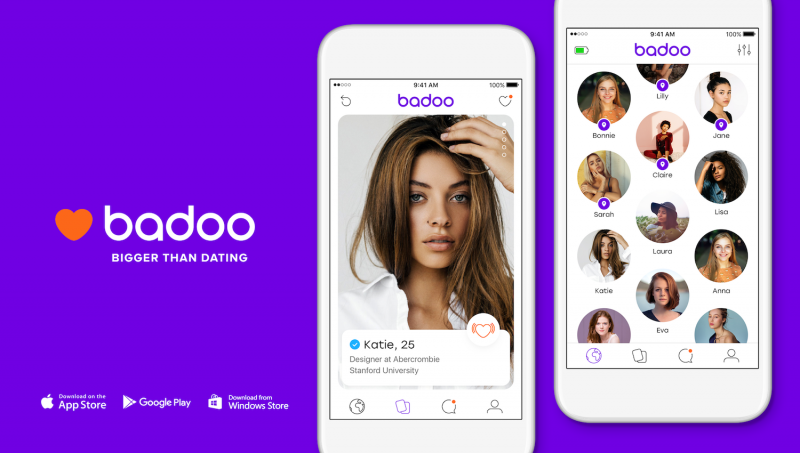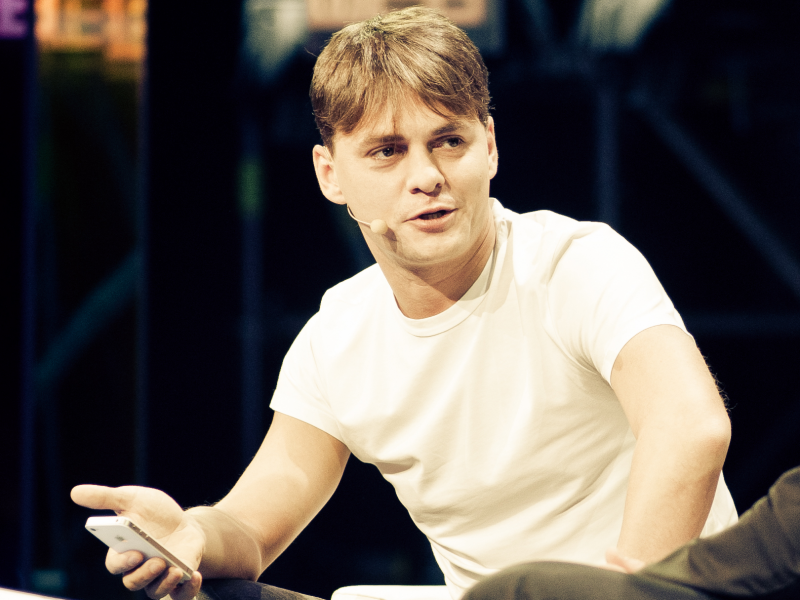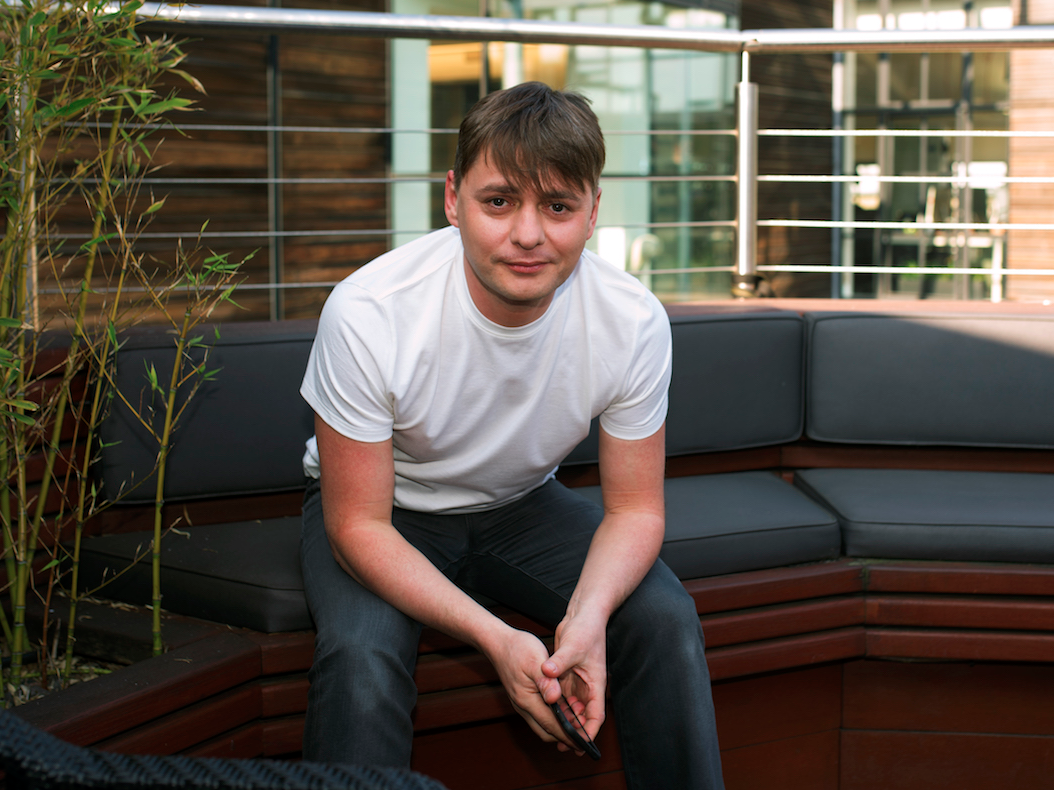LONDON – Andrey Andreev doesn’t do interviews. Or at least, he hasn’t done any since 2013.
Andreev’s public profile has always been small, but over the past five years you’ll be hard-pressed to find any public appearances by Andreev whatsoever.
That wouldn’t be unusual for, say, an analyst or a secretive investor. But Andreev is the CEO of dating app Badoo, one of the largest dating apps in the world and a rival to Tinder.
Russian-born Andreev prefers to maintain a low-profile, despite his app’s popularity.
A 2016 analysis of total dating app downloads by BBC News that used data from analytics service App Annie found that Badoo was the most downloaded dating app in 21 countries, ahead of Tinder which was the most downloaded in 18 countries.
Andreev agreed to sit down with Business Insider for an interview, his first in nearly four years. We talked about the recent redesign of Badoo, as well as his strategy of forming partnerships with other dating apps, and his reluctance to maintain a public profile. You can read a full transcript of our interview here.
Badoo has been completely redesigned
If you downloaded Badoo a few weeks ago, you may have been bewildered by all of the different features and options in the app. You could buy virtual roses for other users, pay to have your profile featured, or try to top up a virtual "battery" showing your popularity.

Badoo, which originally launched in 2006 as a desktop site, had become a confusing mess of features. Andreev called it a "Frankenstein" and "like a little Christmas tree." That's changed with its redesign, which has stripped away the clutter and made Badoo look more like a modern dating app.
Andreev admitted that Badoo's redesign was long overdue. "The old interface was limiting us in so many ways and even though we had tweaked and improved it many times, it got to the point where I admitted that we can no longer build up new features upon an old interface," he said.
The app has an industry-standard swiping mode, where you swipe right on people you like. If you both swipe right on each other then you match and can send each other messages. But there's also a location-based mode which shows you local users in a list.
"The new Badoo that you can see today is just a skeleton for a whole load of amazing, game-changing features that are coming live very soon," Andreev said. "Now we have the opportunity to implement them."

There are two core messages that Badoo hints at in its redesign: It's "bigger than dating" and it has a whole load of users. It's not subtle about that messaging, either. Open the app and you'll see "bigger than dating" displayed below the logo, followed by a live count of the app's users (it was 344 million at the time of writing.)
Andreev has run online dating sites since 2004
Business Insider met with Andreev, who was named "one of the most mysterious Russian businessmen in the West" by Forbes Russia, on a roof terrace at Badoo's office in Soho, London. The company also has an office in Moscow, Andreev said.
Andreev was visibly nervous to be interviewed and let out a relieved sigh when we turned off our dictaphone. He wore a typical technology CEO outfit: A white T-shirt, jeans, and trainers, albeit with Lanvin sunglasses.
In fact, Andreev only wears white T-shirts. That might seem strange, but sticking to one style of clothing is surprisingly common in technology. Facebook CEO Mark Zuckerberg wears grey T-shirts, for example, and Telegram CEO Pavel Durov sticks to a wardrobe that's entirely black.
Andreev began his career in Moscow, where he was born in 1974. He founded a desktop advertising tool named SpyLog in 1999 and another advertising company named Begun in 2002, before settling on the world of dating with another site, Mamba, in 2004.

Badoo was launched in 2006, and it raised $30 million (£23.9 million) from Russian venture capital firm FINAM Technology Fund in 2008. The fund bought 10% of Badoo, which valued the business at $300 million (£239 million), before buying another 10% in 2009 at a higher valuation.
Andreev didn't rule out an IPO when he was asked about the possibility by Bloomberg in 2013. Has anything changed? "An IPO for every company means the beginning of an end, when the structure becomes more co-operative and innovative projects are hard to pass through line managers," Andreev said. "Believe it or not, but after 11 years of Badoo it still feels like a startup. We are open to ideas from every single member of our team. We test, make mistakes and create new, exciting products for Badoo. What's not to love? I think I'll stick to it for a little while."
Badoo does deals with other dating apps - but it isn't looking for acquisitions
A core part of Badoo's business is forming white-label partnerships with other companies. Smaller apps use Badoo's technology in exchange for a revenue share deal. If you use a dating app such as Blendr, Huggle, or Chappy, you're actually swiping using Badoo's technology.
Andreev said his company takes 50% of the revenue of the smaller app in exchange for providing the underlying technology. "From our side we provide the technology platform, moderation, service-side, a whole bunch of things. The whole infrastructure," he said. "From their side they provide marketing. They market [to] users, they bring the users. They're responsible for the users, we're responsible for keeping users on the platform, monetising users on the platform, making the users happy."
One issue with partnering with other dating apps is that Badoo often ends up competing with itself. A user may decide to join a different app instead of Badoo, reducing Badoo's share of the revenue. But Andreev isn't worried about cannibalisation. "It's like going to restaurants," he said. "If a new one opens around the corner, it doesn't mean that you're going to stop going to the one you have always loved."
Badoo also regularly invests in the companies it does partnerships with. It has invested in dating app Huggle, for example, as well as Chappy. However, Andreev said he isn't looking to acquire any other companies. "I'm currently really busy with Badoo," he said.
It's all down to trust, Andreev said. "The goal here, if I see the individual who I can trust and I believe that this individual can make this project happen, I'm happy to participate myself and with [the] Badoo infrastructure by providing Badoo infrastructure and providing some funds."
Badoo has partnered with Bumble, the dating app started by Tinder cofounder Whitney Wolfe

The most high-profile partnership that Badoo has is with Bumble, the US-headquartered dating app run by Tinder cofounder Whitney Wolfe.
Wolfe left Tinder in 2014 and filed a lawsuit against Tinder and its parent company IAC in which she accused two of Tinder's other founders, then-CEO Sean Rad and Justin Mateen, of sexual harassment. The lawsuit was settled that same year for "just over" $1 million (£798,000).
"Whitney and I started the business together back in 2014," Andreev said. "I loved her vision for a female-focused company in the social media space, and believed in what she wanted to achieve."
Andreev explained that Bumble "runs autonomously as an entirely separate company; headquartered in Texas under Whitney's leadership." He denied acquiring the company, but did confirm he had invested in Bumble. TechCrunch reported in 2016 that Badoo is the majority shareholder of Bumble, owning 79% of the company.
The partnership between Badoo and Bumble isn't a 50/50 revenue share deal, Andreev said. "This is what I call [a] tailor-made partnership where we are trying to understand and define the business model together, trying to find a message together, trying to find the direction of the future project."
Andreev isn't about to start doing more interviews or public appearances
It's unusual for the CEO of a large, consumer-facing technology company to actively shy away from doing any kind of publicity for his app. Tinder chairman Sean Rad regularly gives interviews, for example, and even Mark Zuckerberg talks about his plans for Facebook. So why doesn't Andreev talk to the press?
"Badoo is a tech company founded by purely tech people. We have never done any PR," Andreev said. "Badoo was founded when no PR was needed for tech companies. All you needed to do is actually have a good product."
However, Badoo's former European consumer PR manager Alice Bonasio said that the company did, in fact, do PR. A promotional campaign in New York had a budget of $1 million (£778,000), Bonasio said. Andreev clarified to Business Insider that he meant to say his company "has never been a PR-focused company."
We asked whether this interview marked a new chapter for Andreev, where he would be more open and adopt a more public-facing role. "No, no, no, no, no," Andreev said. "I am not allowed to be shy at this particular moment because we definitely had something very big happen with the company, and I think this is my obligation to talk loud about this and to tell everyone about this."
"If I have things done, like for example this new rethink with Badoo which happened last week, then I'm definitely proud to talk about this, proud to go out for a little bit, talk, and then go back to my desk."
Update: This article has been updated to include information from Alice Bonasio, and clarification from Andrey Andreev on his remarks about PR.

